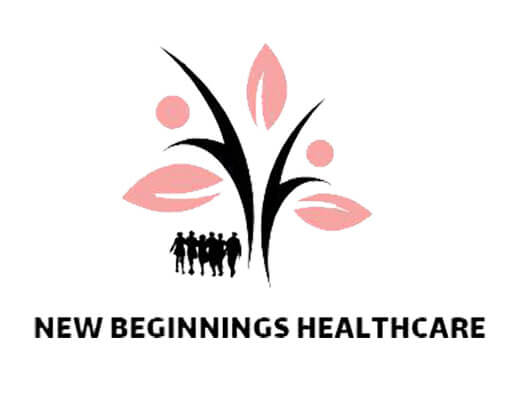High blood pressure, or hypertension, is more common than you might think. It’s a condition where the force of the blood against your artery walls is too high.
Unfortunately, many people don’t realize they have high blood pressure until a heart attack. That’s why everyone should manage their blood pressure. According to the Mayo Clinic, a drug-free approach to lowering blood pressure naturally can be done.
This article provides top tips for lowering blood pressure naturally to enhance your overall health.
Understanding High Blood Pressure
High blood pressure occurs when the blood flow in your arteries is stronger than normal. This can damage artery walls and lead to heart problems.
Systolic vs. Diastolic
Blood pressure is measured with two numbers. The first (systolic) shows the pressure when your heart beats and the second (diastolic) shows the pressure when your heart is resting between beats. High blood pressure is a reading of 130/80 mm Hg or higher.
Causes of High Blood Pressure
High blood pressure can result from several factors:
- Genetics: Family history plays a significant role, making some people more prone to high blood pressure.
- Lifestyle Choices: Poor diet, particularly one high in sodium, lack of physical activity, and excessive alcohol intake can all raise blood pressure levels.
- Stress: Chronic stress contributes to temporary spikes in blood pressure, which can become long-term.
- Obesity: Excess weight increases the workload on the heart, leading to higher blood pressure.
Recognizing the risk factors and symptoms, such as headaches, shortness of breath, and nosebleeds, underscores the importance of regular medical check-ups.
Top Natural Methods for Lowering Blood Pressure
There are many changes you can make to help lower pressure in your arteries, such as:
Dietary Changes: Foods to Eat and Avoid
- Eat more: Include plenty of fruits, vegetables, whole grains, and lean proteins in your diet to help manage high blood pressure.
- Add potassium-rich foods: Foods like bananas and sweet potatoes help balance sodium levels, which can lower blood pressure.
- Avoid high-sodium foods: Limit intake of foods high in salt, sugar, and unhealthy fats.
- Reduce salt intake: Even small reductions in salt can make a big difference in lowering blood pressure.
- Follow a heart-healthy diet: Consider the DASH diet, which is low in sodium and high in nutrients, and proven to lower blood pressure and improve heart health.
Regular Physical Activity
- Exercise regularly: The American Heart Association recommends 150 minutes of moderate exercise or 75 minutes of vigorous exercise per week.
- Incorporate daily activities: Getting up from your desk regularly, taking walks, and taking the stairs instead of the elevator can help you be more active.
- Maintain a healthy weight: Controlling your weight reduces strain on your heart. According to Johns Hopkins Medicine, gaining weight can injure the heart. Men with a 40-inch or higher waistline and women with a 35-inch or higher waistline are at greater risk of high blood pressure.
Stress Management Techniques
- Practice Deep Breathing: Take 5-10 minutes each day to focus on deep, slow breathing. Inhale through your nose, hold for a few seconds, then exhale slowly through your mouth.
- Try Meditation: Set aside 10-15 minutes each day for meditation. This is a good habit to develop after having a stressful day.
- Do Yoga: Join a yoga class or follow an online yoga video for 20-30 minutes a few times a week. Yoga helps to relax your body and mind.
Adequate Sleep
- Prioritize sleep: Aim for at least seven hours of quality sleep each night to maintain healthy blood pressure.
- Establish a sleep routine: Going to bed early and waking up at the same time is better for heart health.
- Improve sleep environment: A dark, cool, and quiet room promotes better sleep. Limiting screen time before bed can also enhance sleep quality and help keep blood pressure in check.
Changes to Recreational Habits
- Quit Smoking: Smoking harms your blood vessels and raises blood pressure. Stopping smoking improves heart health and reduces the risk of heart disease.
- Limit Alcohol Intake: Consuming alcohol in excess raises blood pressure. Men are advised to limit their alcohol consumption to just two drinks per day. For women, the advisable amount is one drink per day.
Know Your Blood Pressure Numbers
Wondering if your blood pressure is healthy? You need to check it regularly and know your numbers. If you have high blood pressure, regular monitoring is essential. Keeping track of your numbers can help you spot any changes and identify patterns. It also allows you to see if lifestyle changes are making a difference.
If you struggle with lowering blood pressure naturally, consult a healthcare professional. A primary care provider is usually the first contact patients have with a practitioner. Use your visits to the provider to your advantage by seeking preventive care and chronic disease management services.
Hypertension Treatment Near Me in Monroe County, PA
Dr. Akia Blandon is our compassionate and highly skilled primary care provider at New Beginnings. Dr. Blandon offers comprehensive care and helps our patients achieve their health goals.
Come to Dr. Blandon with your health concerns and share your goals with her. It is her mission to help boost your overall health. Our caring team is experienced in treating high blood pressure and the management of resistant hypertension. We can provide personalized advice and guidance for lowering your blood pressure.
To schedule a consultation with Dr. Blandon, call our office today at (484) 640-5400. You can also use our appointment request form. New Beginnings has two locations, one in Stroudsburg and another in Florham Park. We are happy to serve you in either one of our locations.

